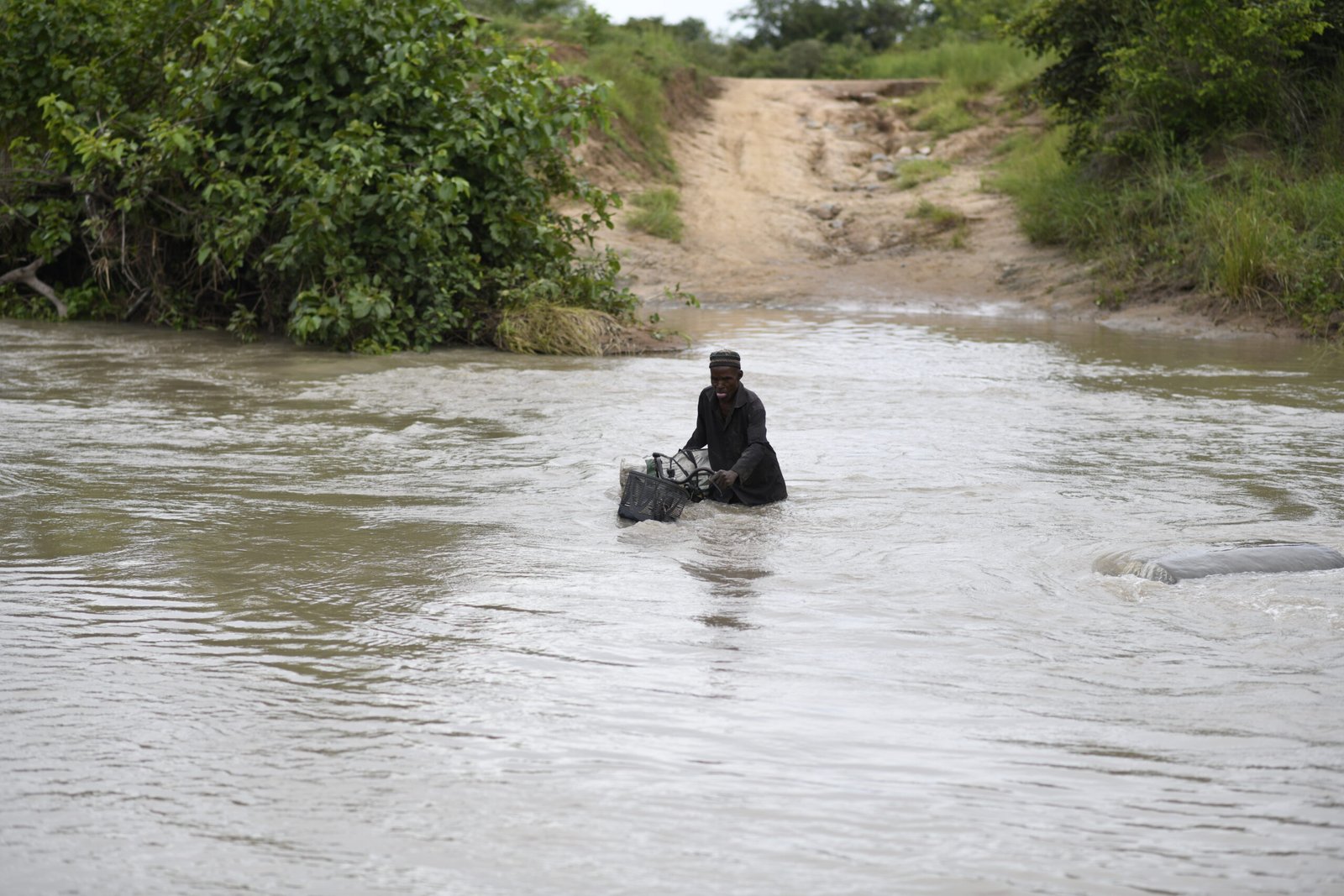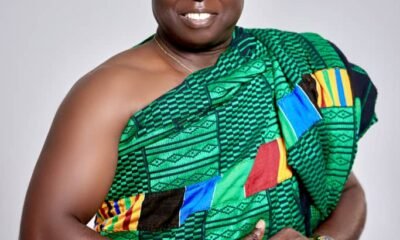News
Annual Bagre Dam Spillage — A Blessing or Curse?

For many farming communities scattered along the White and Black Volta basins, the rainy season brings both promise and peril — a time when the blessings of rainfall merge with the dread of annual flooding triggered by the spillage of Burkina Faso’s Bagre Dam.
A few weeks ago, officials in Ouagadougou confirmed what residents in Northern Ghana had long feared — the controlled release of water from the Bagre reservoir.
While the measure is necessary to prevent the dam’s collapse, it has for decades spelled destruction downstream, leaving Ghana’s northern regions counting their losses year after year.
The story is all too familiar. Entire fields of maize, rice, and groundnuts vanish beneath raging waters. Mud-walled houses crumble under the force of the floods, while roads connecting villages disappear, schools close, and classrooms are turned into makeshift shelters for displaced families.
The National Disaster Management Organisation (NADMO) rushes in with mattresses, blankets, and bags of rice, but the relief items, though vital, are often insufficient compared to the magnitude of devastation. In Yagaba, for instance, some victims reportedly received no support at all due to limited resources.
“This year, at least there was some education on resilience and preparedness,” said Issah Yakubu, a farmer from the North East Region who lost his crops in last year’s floods. “But when the water comes, we lose everything — maize, rice, groundnuts. When it goes, there’s nothing left to eat or sell,” he lamented.
NADMO continues to urge residents in flood-prone areas across the Upper East, North East, Savannah, and Northern Regions to relocate to safer grounds. But for many, relocation is not an option. Their livelihoods are tied to the fertile riverbanks; abandoning their farms would mean abandoning the only source of income they know.
Last year alone, thousands of people were displaced across northern Ghana due to flooding.
Yet, amidst the destruction lies an irony. The same floods that wreak havoc also deposit nutrient-rich silt on farmlands, making them fertile for dry-season farming.
Agricultural experts argue that, with proper irrigation systems and government support, these communities could turn disaster into opportunity. “The spillage is both a challenge and a blessing,” said rice farmer, Aziz Zakaria. “If we had irrigation schemes, we could use this same water to grow crops in the dry season. The water that destroys can also sustain us,” he added.
Some have argued that the long-promised solution lies in the construction of the Pwalugu Multipurpose Dam in the Upper East Region — envisioned to serve as a buffer for excess water from Bagre, generate electricity, and irrigate thousands of hectares of farmland.
However, delays in implementation have left communities trapped in a yearly cycle of loss and recovery.
Civil society organisations have repeatedly called for a shift from relief-based interventions to long-term resilience strategies — strengthening infrastructure, empowering communities, and developing sustainable livelihoods.
The broader picture is even more concerning. With the global climate crisis intensifying, rainfall patterns across the Sahel have become increasingly erratic. Burkina Faso’s dam managers are often compelled to spill earlier, or even multiple times in a single season, to protect the integrity of the Bagre Dam.
The result is an unpredictable flood cycle that leaves Ghana’s northern communities living in constant fear and their futures washed away by forces beyond their control.
As the waters rose once again this year, displacing countless innocent families, one truth remains undeniable: until proactive measures are taken ahead of the next season, the Bagre Dam spillage will continue to shift from a yearly natural occurrence to what is truly a slow-motion, man-made disaster.
By Geoffrey Buta, Tamale
Join our WhatsApp Channel now!
https://whatsapp.com/channel/0029VbBElzjInlqHhl1aTU27
News
Damango wages war on shisha smoking among minors

Troubled and anxious citizens in Damongo of the Savannah Region have expressed concerns about the number of young people, believed to be under the age of 18, involved in ‘shisha’ smoking in pubs and drinking spots within the township.
Eyewitnesses say the minors were seen patronising nightlife venues, where Shisha smoking happen in the open.
The situation has sparked renewed public concern over the enforcement of child protection laws and regulations governing the operations of entertainment centres in the municipality and country as a whole.
An eyewitness, who spoke to The Spectator on conditions of anonymity for security reasons, noted that the situation was becoming increasingly common.
“This is not a one-off incident. It is becoming very common, but residents like us cannot openly report or speak about it because our lives will be at risk,” he said.
Under Ghanaian law, minors were prohibited from patronising Shisha.
Public health experts have consistently warned that shisha use exposes users to harmful substances that can negatively affect brain development, respiratory health, and overall well-being, particularly among young people.
The residents believe the alleged incidents point to broader challenges relating to youth supervision, substance abuse, and weak enforcement of existing regulations and have called on municipal authorities, security agencies, and regulatory bodies to intensify monitoring of pubs and entertainment centres to ensure compliance with the law.
In an effort to address the menace, Mr Salisu Be-Awurbi, the Savannah Regional Minister, has led public education campaigns, engaged security agencies, and supported enforcement actions to address the rising use of illicit substances in the region.
Wura Kelly Seidu Boresah I, the Chief of Damongo, has also called on all stakeholders including parents, community leaders, institutions, and young people to actively support efforts to curb drug abuse, warning that the rising consumption of hard drugs poses a serious health threat to the future of the youth in the Savannah Region.
He also cautioned individuals involved in the sale and distribution of illicit drugs to immediately desist from the practice, stressing that offenders will face arrest and prosecution in accordance with the law.
From Geoffrey Buta, Damongo, Savannah Region
Join our WhatsApp Channel now!
https://whatsapp.com/channel/0029VbBElzjInlqHhl1aTU27
News
Ga Mantse endorses initiative to end domestic voilence

Dr Theresa Baffour, an advocate for ending violence and Chief Executive Officer (CEO) of SAHM SAHW Foundation, has said that society plays a critical and pivotal role in breaking the cycle of domestic violence.
According to her, domestic violence is a major contributor of making women, who are mostly the victims, mentally derailed and unable to engage in economic activities.
She said this when the foundation called on the Ga Mantse, Nii Tackie Teiko Tsuru II, to solicit support for the initiative by the “Strong and Healthy Minds, Strong and Healthy Women” (SAHM SAHW) to combat domestic violence within the Ga State.
The visit was occasioned by the fact that domestic violence cases have become quite prevalent in the Ga communities and is retarding growth.
According to her, the canker was an impediment to national development because the victims were usually tortured and would have to go through series of therapies to return to the right state of mind.
Dr Baffour mentioned that Gender-Based Violence (GBV) places a mental toll on women, and was, therefore, important to break the cycle through comprehensive mental health support, crisis intervention and empowerment programmes in communities with high rates of GBV.
This intervention, she underscored, would help in empowering the denigrated victim of domestic violence to soundly heal, build and thrive.
Dr Baffour added that the initiative would provide holistic, trauma-informed mental health care and advocacy for young women affected by domestic violence.
According to her, the above statement would create safe spaces for healing and equipping them with entrepreneurial skills for renewed hope and empowered life.
The Ga Mantse pledged his support for the laudable initiative to combat domestic violence and also acknowledged the need to address it in the Ga State.
Further endorsement came from Justice Julia Naa-Yarley Adjei Amoah, Chief of Staff at the Office of the Ga Mantse, as she commended the team of SAHM SAHW Foundation for taking a bold step to end the canker in the Greater Accra.
She added that it was a step in the right direction to save vulnerable women from torture, stress and emotional abuse.
By Alfred Nii Arday Ankrah













